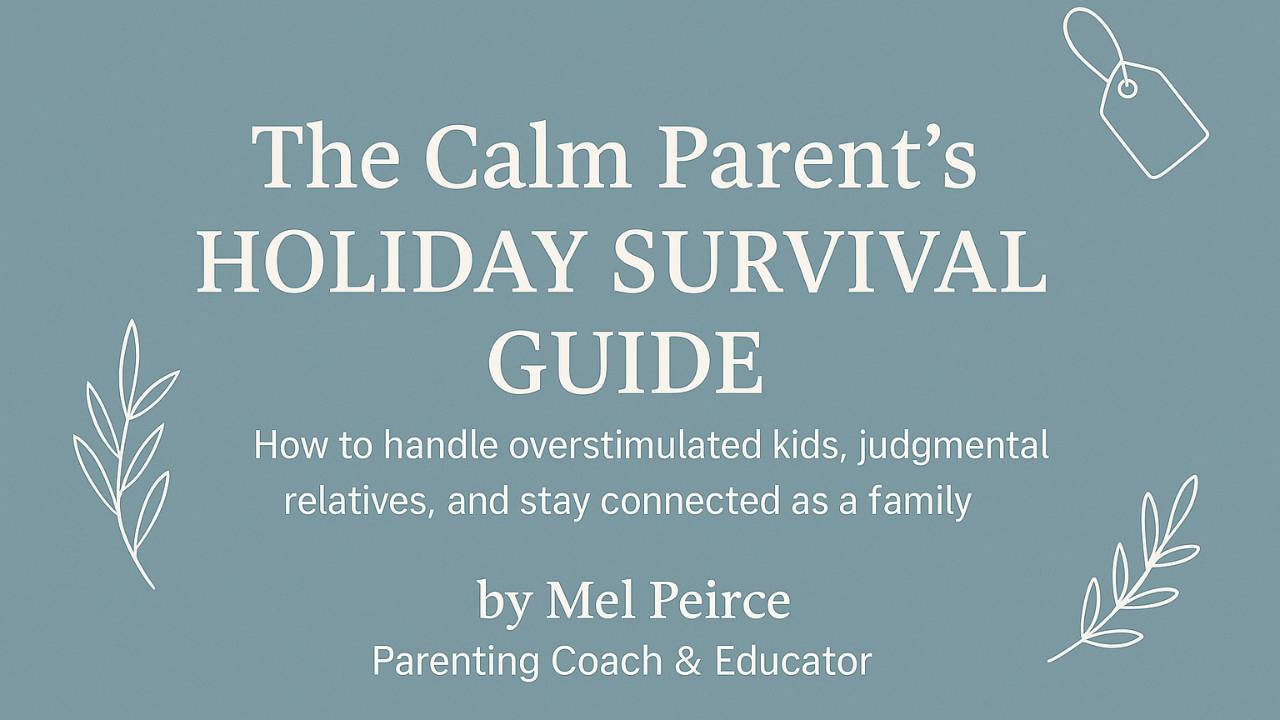Are you a "Fix It" Parent? How to parent your anxious, afraid, or disappointed child.
May 24, 2021
As a parent, do you have a difficult time when your child is anxious, afraid, disappointed, or sad? Does your brain start running a “something is wrong” program and start looking for ways to “fix” what’s wrong so your child can feel better? I know that mine does!
When your brain tells you something is wrong, you start looking for solutions. You think that if your kid was involved in more activities, or wasn’t involved with as many activities, or worked harder in school, or didn’t work as hard in school, or had more friends, or had different friends, or made the team, or wasn’t on the team… then your kid would be happy, which would make you happy. The list is endless and ever-changing my friends.
Say your child is disappointed because they lost a game, or don’t do well on a test or project that they worked really hard on... Have you ever suggested stopping for ice cream or a treat on the way home as a pick me up? Does that sound familiar? Your brain is telling you that your child feeling a negative feeling (disappointed) is a problem, and you need to fix it. Wanting to fix what’s wrong so our children feel better is ingrained in us as parents and we likely don’t even realize that we do it!
I recently had an opportunity to see this all play out when I met a Mom who was the ultimate “fixer”, and there at every step to help her children with their problems. She thought she was being a helpful and attentive mom, but unfortunately it backfired for her and her daughter. Her daughter is now 28 years old and still calling her mother with every decision she has to make and every problem that she faces. Her daughter hasn’t developed the confidence to make her own decisions, or the problem solving skills to work through the challenges that come up in life. Her mother wishes she learned the information that I’m teaching 20 years ago!
Please listen, this is important… You can’t control or fix enough things in your life or your kid’s lives to make yourself feel better… and in the process you become a control fanatic. You try to control everything in your kid’s lives, but it doesn’t solve the problem. It can also unknowingly send a message to your child that it’s not normal to feel negative feelings and something is wrong with them.
So what do you do when you find yourself wanting to “fix” things?
The first step is to realize when you’re the one feeling uncomfortable with your child having negative emotions. Your brain is running the “something is wrong” program and wants you to fix it. So identify when you just want to help them feel better, and learn to just sit with the discomfort yourself. Tell yourself that nothing has gone wrong. It’s completely normal for your children to experience negative emotions, and it’s okay for you to be uncomfortable. Again, nothing has gone wrong for either of you.
The second step is just to normalize the negative feelings for your kids, and let them know that it’s okay to be anxious, afraid or disappointed at times. Nothing has gone wrong. You don’t want your kids to be happy all the time because the process of overcoming challenges and conflicts helps them build confidence in themselves and build problem solving skills. You also don’t want to give them the expectation that they’re supposed to be happy all the time. You want them to know that life will have ups and downs and help them build resilience so that they can handle adversity.
The third step is to help build their identity as someone that can handle negative feelings, overcome challenges and solve problems. Connect with them and let them know that you understand the feelings they are experiencing, and then gently tell them that you know that they are good at figuring things out, working through conflicts, overcoming challenges, etc… If you can, have examples of things that they’ve worked through in the past to give them evidence that they’ve done it in the past so they can have confidence to work through it this time too. You can tell them that you have confidence in them and are holding the belief that they can figure it out.
The final step is to help them process the feelings. Now, this is more involved and too much information for one blog... but I encourage you to check out my free workshop on How to Help Your Child Navigate Negative Feelings. I give you a step by step process on what to do when your child is struggling with negative emotions.
I do want to end this with one caveat… We always want to make sure that our children are safe and yes, there are times where as parents we do need to get involved to help our children work through things. As parents, if there is ever a question that your child truly may be in over their head then of course you want to support them in the best way possible. That said, we also want to encourage our children to figure things out on their own and let them work through conflicts. I invite parents to question whether your child truly needs an adult to step in or if you’re just uncomfortable and want to “fix” it. If you have any doubts, always err on the side of safety.
Please visit melpeirce.com/register to check for the next date of my How to Help Your Child Navigate Negative Feelings workshop. You can find out how to help your child deal with negative feelings as well as other specific and actionable strategies that you can start using today to help you better connect with your kids.
If you are experiencing a specific challenge and want more individualized one-on-one help, please visit melpeirce.com and book a free call with me.
Join the Confident Parenting Community.
Receive the latest tips and tools from the Confident Parenting Toolbox to support your kids
(and yourself!) with today's challenges so your whole family can thrive.
We hate SPAM. We will never sell your information, for any reason.


